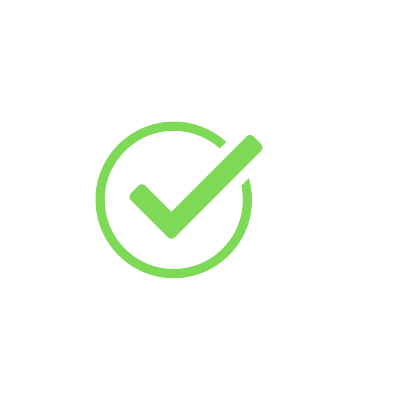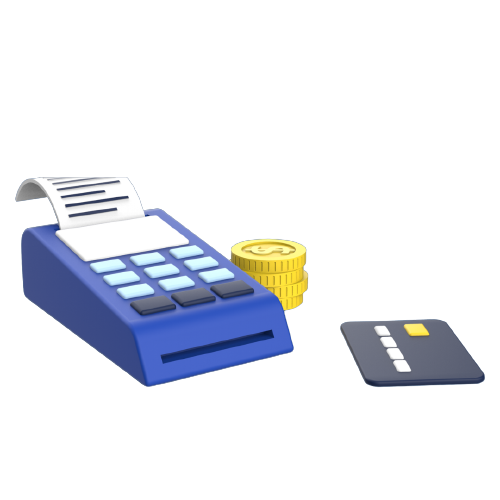Guidelines for Success: Do's and Don'ts
Apply NowTo Do and Not Do Prior to Your Mortgage Funds
Before your mortgage funds, there are several important steps you should take to ensure a smooth and successful closing process. Here is a list of what you should and shouldn’t do:

What you Should Do
Complete all required documentation
You must finish all necessary paperwork before your mortgage funds. To evaluate your financial status and approve your loan, your lender will ask for a number of documentation. These documents frequently contain:
- Income verification: Your lender will need proof of your income. Recent pay stubs, W-2s, and, if you’re self-employed, tax returns and profit and loss statements are usually included in this.
- Bank statements: In order to confirm your assets and make sure you have enough money for the down payment and closing charges, your lender will need to view recent bank statements.
- Credit history: Lenders will pull your credit report to determine your creditworthiness based on your credit history. By paying your bills on time, avoiding new credit inquiries, and refraining from making large purchases before closing, you can retain solid credit.
- Additional information: Depending on your financial condition and the lender’s specifications, you might be required to submit more paperwork, such evidence of residency, divorce papers, or justifications for any unexpected financial transactions.
Prior to finalizing your mortgage, stay away from making significant changes to your finances, such as leaving your job, switching careers, or taking on additional debt.Making big financial changes before closing is typically not advised. They are looking for confirmation that your financial condition is stable. Lenders require proof of a history of consistent employment. Questions about your ability to repay the loan may arise if you change jobs. Similar to this, significant purchases, especially those made with credit, can affect your debt-to-income ratio, a crucial criterion for mortgage approval. A new automobile, pricey furniture, and other significant expenditures should not be made on credit prior to closing.

Continue paying your bills on time, and stay away from significant credit purchases and new credit inquiries as they can both harm your credit score and ability to get a mortgage. Thus, getting a mortgage depends greatly on your credit score. Here are some recommended actions for effective credit management and some actions to avoid:
- Pay bills on time: Continue to make on-time payments on all of your expenses, including credit cards, loans, and utility bills. Late payments can harm your credit score, which makes getting a mortgage more difficult.
- Avoid new credit inquiries: Every time you do, a hard inquiry is issued on your credit record. Your credit score can be lowered by more queries. Prior to closure, refrain from applying for additional credit cards or loans.
- Don’t close existing credit accounts: Although it may be tempting, doing so will lower your credit score. Even if you don’t routinely utilize these accounts, it’s generally preferable to keep them open.
Communicate with your lender

Keep in close touch with your lender and tell them of any changes to your situation. Inform your lender as quickly as you can if you experience any problems, such as unforeseen costs.
Perform one last inspection
Plan a final walkthrough of the property before closing to make sure it is in the condition you anticipate and that any negotiated repairs have been finished.
Review the closing disclosure
Examine the closing disclosure that your lender has provided in detail. The exact details of your loan, such as the interest rate, closing costs, and monthly payments, are described in this document. Verify that you are familiar with all the details before continuing.
Have funds ready
Ensure that you have the necessary funds for your down payment and closing costs available in your bank account and ready for wire transfer or cashier’s check. Your lender will provide specific instructions.

What you Shouldn't Do
Don't apply for new credit
One of the key criteria for mortgage approval is your credit score. A hard inquiry is made when you apply for new credit, which temporarily lowers your credit score. Your creditworthiness may be considerably impacted by several enquiries in a short period of time. Prior to the closing of your mortgage, refrain from applying for any additional credit cards, personal loans, or other forms of credit.
Don't close existing credit accounts
While it’s crucial to refrain from creating new credit accounts, it’s also crucial to refrain from closing any that are already open, particularly those that have been open for a while. Your credit history’s length, which can be reduced by closing old accounts, affects your credit score.
Don't max out your credit cards

High credit card balances compared to your credit limit may have a negative effect on your credit score. Keep your credit card balances low, ideally under 30% of your credit limit. Try to avoid making any significant purchases on your credit cards prior to closing since this could raise your credit usage ratio and impair your chance to obtain a mortgage.
Don't change your employment status
Clients with consistent jobs are preferred by lenders. If a borrower switches jobs or starts their own business right before the closing, the lenders can be apprehensive. They want to ensure that you have a reliable source of income to cover your mortgage.
Don't make large cash deposits
If you plan to pay the down payment or closing costs with money from a source other than your regular income or savings, avoid making sizable cash deposits into your bank account. Significant deposits are thoroughly investigated by lenders, and inexplicable or unsupported cash deposits can raise suspicions. Consult your lender before making any significant financial decisions.
Don't co-sign loans
Co-signing a loan for someone else could affect your debt-to-income ratio, a critical factor in mortgage approval. Despite the fact that you are not the primary borrower, the co-signed loan may nonetheless have an impact on your financial condition. Lenders consider the potential financial responsibilities and hazards associated with co-signing a loan when considering your creditworthiness.
Don't make unusual bank account transactions
Lenders look into your bank statements to ensure sure you can make payments. Avoid performing transactions that seem odd or unusual, such as significant cash withdrawals or sizable account transfers. These behaviors can cause your lender to ask questions and delay the closure.
Don't ignore outstanding debts
Before closing, take care of any outstanding debts or collections. Lenders may require you to settle any obligations before they approve your mortgage application. Ignoring past due invoices could result in delays and other issues with loan qualification.
Don't forget to take closing charges into account.
In addition to your down payment, closing costs represent a significant expenditure when buying a house. These charges often consist of fees for inspections, appraisals, title searches, and other costs. It is essential to have enough money saved up to pay for these costs because they are frequently due at the closing table.
Don't assume a mortgage is guaranteed
A seal on the agreement shouldn’t be assumed until all necessary paperwork has been signed and you have heard from your lender that the mortgage has funded. The result of the sometimes complicated mortgage approval process may depend on a variety of variables. Up until the mortgage is closed, stay in touch with your lender and abide by their rules.
Avoid doing any acts that could harm your credit, employment security, or financial status while you get ready for a mortgage to fund. You can improve your chances of a successful mortgage closing by following these rules and speaking with your lender as necessary.
